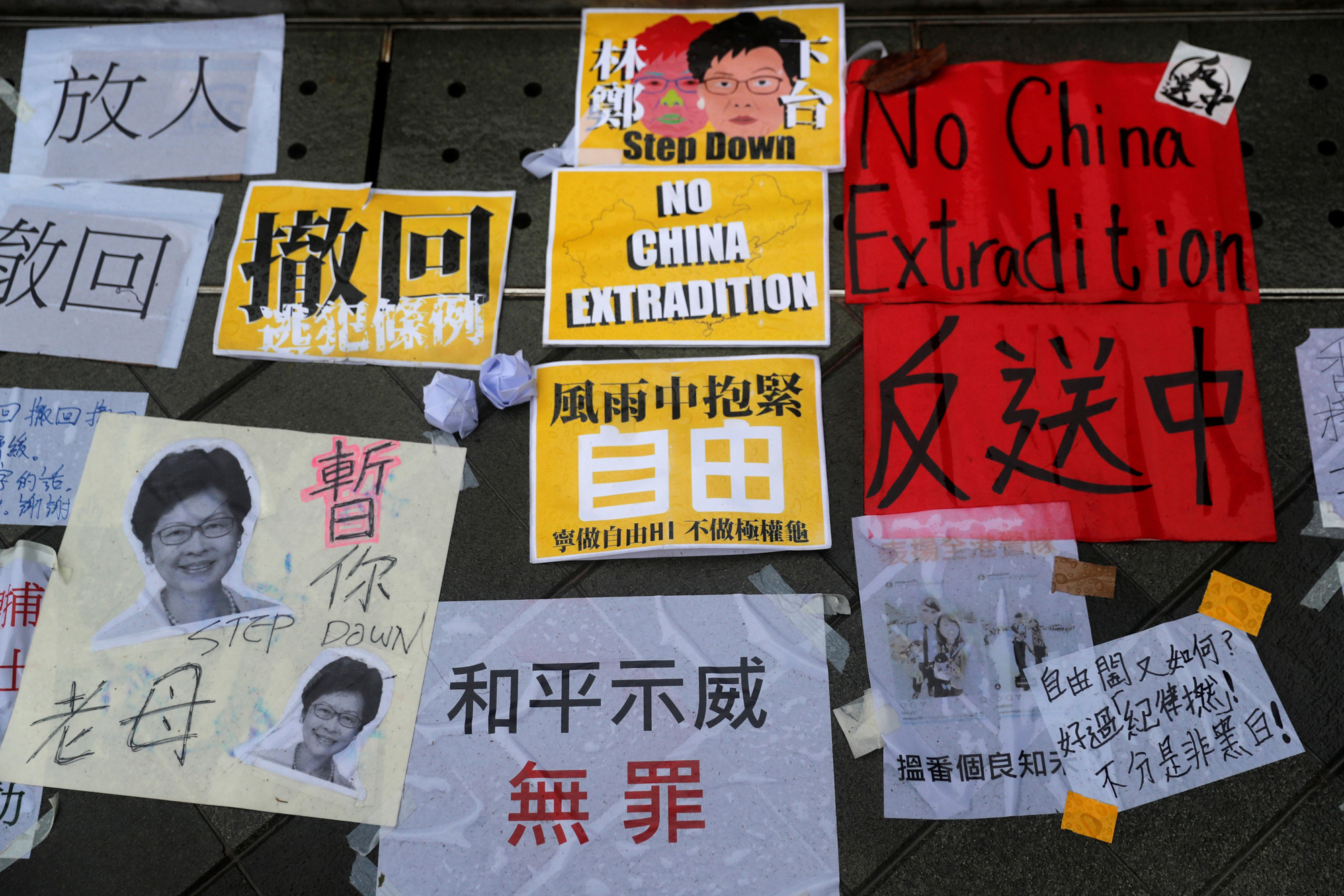Hong Kong protesters have won a stunning victory. Saturday's suspension of an extradition bill that would allow criminal suspects to be sent to mainland China followed a day of violent clashes on Wednesday that saw the police use tear gas, pepper spray and baton charges. In 2014, the police also used tear gas against demonstrators, prompting an occupation that paralyzed the central business district for more than two months. Yet the government refused to budge, and the protest was eventually cleared by force. It's worth asking what was different this time.
The most obvious answer is the role of business. Occupy Central had limited support from companies, and what sympathy there was clearly waned as the weeks wore on and the costs to business mounted. By contrast, opposition to the extradition bill has united various strands of Hong Kong society, from civic and trade groups to religious organizations and the legal profession. That's even more evident after Sunday's monumental protest, which organizers said drew almost 2 million people.
Business stalwarts such as HSBC Holdings Plc and Standard Chartered Plc were among multinationals that allowed flexible working hours last Wednesday, when protest organizers had called for a city-wide strike. In 2014, by contrast, the Hong Kong General Chamber of Commerce and several foreign chambers spoke openly against the civil disobedience campaign, warning of the potential effects on the economy.



